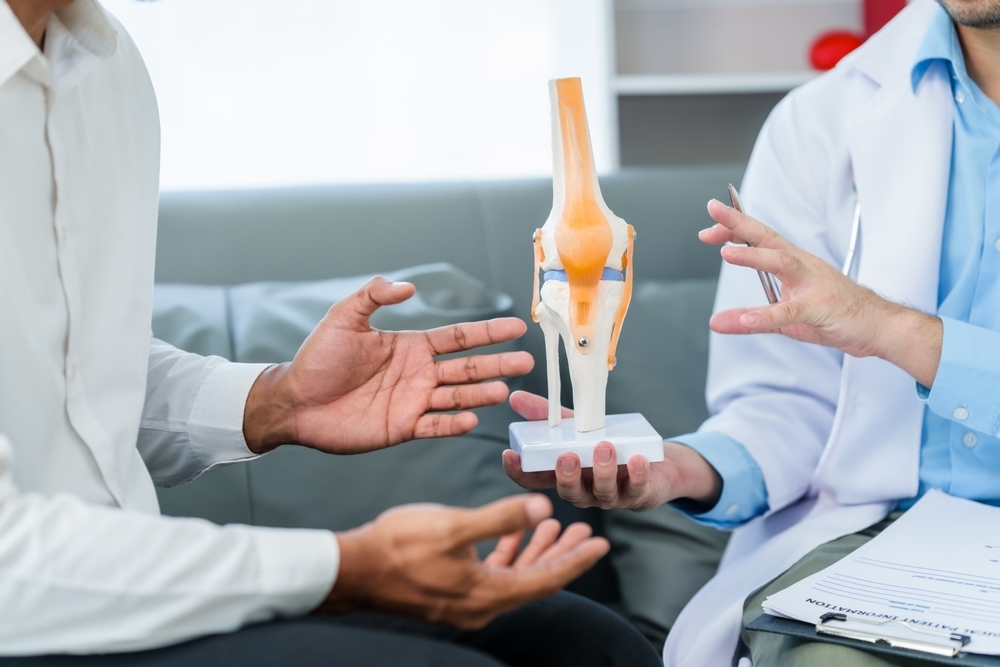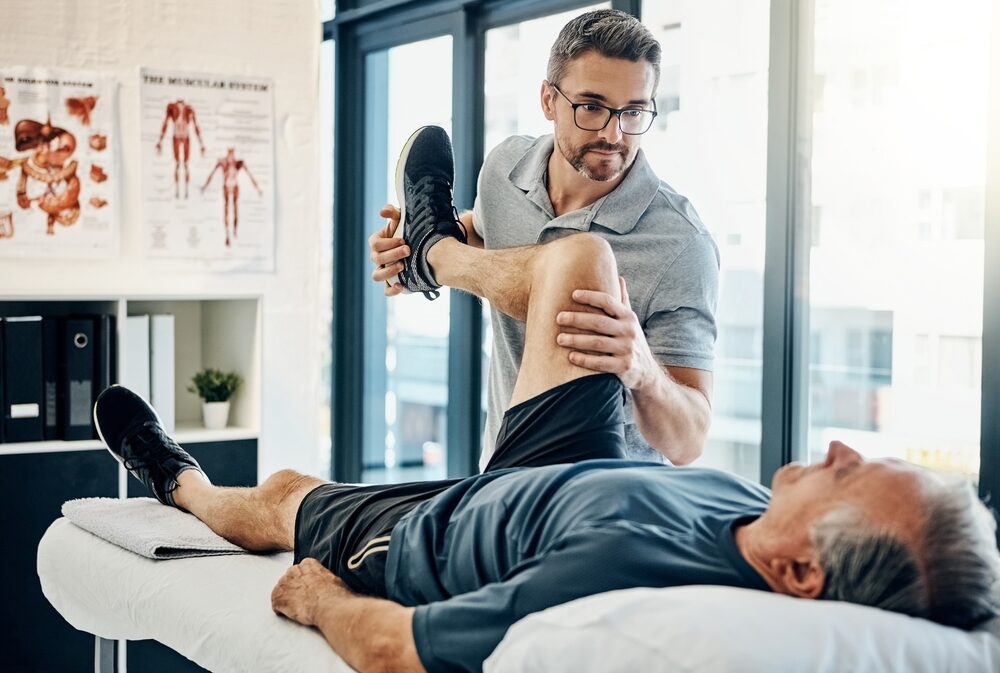
☝️ The most important facts in brief
- Rheumatology is a branch of internal medicine that deals with the diagnosis and treatment of numerous diseases of the musculoskeletal system.
- In principle, all diseases of the musculoskeletal system that are not caused by an injury or cancer fall into the rheumatic category.
- As a rheumatologist, you will look after both children and adults of all ages.
📖 Table of contents
A rheumatologist is a medical specialist who specialises in the diagnosis and treatment of rheumatic diseases. Their job is to examine, diagnose and treat all rheumatic diseases. These can occur in both adults and children and sometimes differ significantly depending on the type of disease. To become a rheumatologist, you must Study human medicine and then complete a specialist training programme in internal medicine.
Are you interested in studying medicine?
We will be happy to advise you free of charge about your options for studying medicine, including advice on studying medicine in another EU country, which is fully recognised in Germany.
Rheumatology is a sub-speciality of the specialist area of internal medicine
Rheumatology is not an independent speciality, but is part of internal medicine. It includes the so-called rheumatological diseases. This term describes autoimmune diseases that affect joints, muscles, tendons and connective tissue. In total, there are well over 400 rheumatic diseases.
Rheumatologists are therefore specialists in internal medicine whose main aim is to minimise the effects of inflammatory rheumatic diseases and to offer patients affected by rheumatism the best possible quality of life through appropriate treatment.
Tasks of the rheumatologist
Rheumatologists are specialists in the diagnosis and treatment of numerous rheumatic diseases. They take a comprehensive medical history and examine their patients, focussing in particular on the condition of the joints, muscles and connective tissue.
Special laboratory tests are used to identify rheumatoid arthritis and many other rheumatic diseases. The rheumatologist then plans the appropriate therapy together with the patient, with the aim of minimising the restrictions caused by the disease.
Rheumatology encompasses many different diseases
More than 400 rheumatic diseases are known in rheumatology. Some of these can affect not only joints, tendons, muscles, spine and bones, but in the worst cases even organs.
People of all ages can be affected by rheumatic diseases. From children to senior citizens, the patient group of a doctor specialising in rheumatology is therefore a colourful mix. Treatment measures for rheumatism are individually adapted to the respective circumstances and the exact nature of the disease. Rheumatologists often work closely with orthopaedists, paediatricians and other specialists to ensure the best possible treatment.
Common treatment methods in rheumatology
Rheumatic diseases require specialised treatment. Specialised doctors use various methods to treat joint pain and numerous other complaints as well as serious complications caused by the disease.
After an anamnesis and precise diagnosis, a personalised therapy plan is drawn up. We will now introduce you to some of the methods that can be used as part of such a therapy.
Medication
Medication is often a central component of the treatment of inflammatory rheumatic diseases. The doctor selects the medication to suit the diagnosis and the patient's individual circumstances. It is often necessary to make a few dose adjustments and medication changes as part of the therapy until the right solution is found.
During this time, regular examinations are carried out to check how the patient is tolerating the medication and whether the condition of the joints, tendons, muscles, skin and other affected organs has improved.
Physiotherapy
In terms of joint mobility, physiotherapy can be an important complement to drug therapy. By strengthening the musculoskeletal system through training tailored to the individual body, fewer complaints occur. Among other things, physiotherapy helps to stabilise the spine, which ultimately has long-term benefits for the entire musculoskeletal system.
If rheumatic diseases are treated with physiotherapy, the focus is always on the individual possibilities of the individual patient.

Orthoses
Orthoses support the joints and can therefore alleviate pain and other symptoms and enable better participation in everyday life. Doctors prescribe orthoses for psoriatic arthritis as well as for many other rheumatological diseases.
Customised aids give the affected joint more stability. An orthopaedic surgeon, rather than a rheumatologist, may have to decide whether an orthosis is appropriate.
Surgical treatments
In some cases, it may make sense to treat rheumatic diseases with surgery. Such operations are primarily performed when other therapies are no longer sufficiently effective.
Depending on the nature of the symptoms, joint replacement surgery may be possible to improve the patient's mobility. If organs are affected by an autoimmune disease, surgery may also be necessary to prevent serious damage.
Nutritional counselling
With rheumatism, diet is often suspected of exacerbating symptoms. It is therefore advisable to establish a balanced diet in everyday life in order to reduce the symptoms caused by rheumatism.
Dietitians recommend foods that inhibit inflammatory processes and do not unnecessarily burden the body with toxins, which it has to filter and process.
How to become a rheumatologist
Rheumatologists must first complete a medical degree programme. This takes 6 years. This is followed by further training to become a specialist in internal medicine. During this, you can specialise in rheumatology. Once you have completed your specialist training after a further 6 years, you will be an expert in rheumatic diseases and can work as a rheumatologist in a clinic or in your own practice.
If you are initially unable to get a place to study medicine at a German university, we at Future Doctor will be happy to help you apply to one of the best universities abroad. If you have any questions, please contact us.
Free information material
Studying medicine abroad 🎉
Order your info pack now, find out more about the Studying medicine abroad and get started as a medical student!





